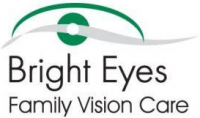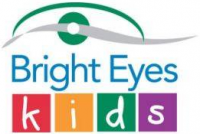Welcome to The Bright Eyes Podcast: Advice for Healthy Vision for All Ages. Your hosts are Dr. Nate Bonilla-Warford & Dr. Beth Knighton, residency-trained optometrist that provide eye exams for glasses and contacts, and specialty services including vision therapy, myopia control, orthokeratology, and sports vision training. Their mission to empower patients by providing the best in friendly, professional, and individualized eye care.
For episode #2 of the Bright Eyes Podcast, Dr. Nate and Dr. Beth discuss the differences and similarities between the 5 O's:
- Optometrists
- Ophthalmologists
- Opticians
- Orthoptists
- Ocularists
Transcript:
Dr. Beth: [00:00:03] From rainy Tampa Bay it's the Bright Eyes podcast. This is episode number two. I'm Dr. Beth Knighton.
Dr. Nate: [00:00:10] And I am Dr. Nate Bonilla-Warford.
Dr. Beth: [00:00:13] And today's episode is all about what is an optometrist.
Dr. Nate: [00:00:18] That's right. But first Beth I need to acknowledge the elephant in the room and that is it really does not sound like we're recording this in a professional recording studio in New York with hundreds of thousands of dollars of equipment. You know why that is?
Dr. Beth: [00:00:36] Because we're in our office on the laptop.
Dr. Nate: [00:00:41] It's true we've got our Blue Yeti microphone and our laptop in the blue exam room in Bright Eyes Family Vision Care and it doesn't sound perfect but it sounds OK. And hopefully over time as we do more of these we will make it sound a little bit better. I was too impatient to get started with the podcast. So here we are.
 Dr. Beth: [00:01:13] So I get asked a lot about what the difference is between an optometrist and an ophthalmologist. And the main difference between the two is surgical treatment. So optometrists and ophthalmologists are trained in eye disease and how the eye works. But we take it from slightly different perspectives, so an optometrist will look more at the functional aspects of eyes and vision how they work as a team versus a ophthalmologist who will look at it from an eye disease standpoint deciding if surgery or laser treatment or other options are needed. And so we both are critical to the eye care world without one or the other. It would really be difficult for our patients. And so the better that we can work as a team and be on board together for our patients it provides better outcomes for everybody.
Dr. Beth: [00:01:13] So I get asked a lot about what the difference is between an optometrist and an ophthalmologist. And the main difference between the two is surgical treatment. So optometrists and ophthalmologists are trained in eye disease and how the eye works. But we take it from slightly different perspectives, so an optometrist will look more at the functional aspects of eyes and vision how they work as a team versus a ophthalmologist who will look at it from an eye disease standpoint deciding if surgery or laser treatment or other options are needed. And so we both are critical to the eye care world without one or the other. It would really be difficult for our patients. And so the better that we can work as a team and be on board together for our patients it provides better outcomes for everybody.
Dr. Nate: [00:02:24] Yeah I agree with that. I think that as a general rule optometrists tend to think more about vision and vision development as people grow from being infants to toddlers to kids to teenagers to adults how their vision changes and what their visual needs are. I think the ophthalmologists that I know some of my friends who are ophthalmologists they tend to think more about how the eyes grow and how the eyes age and what kind of diseases the eyeballs themselves can get. And that would include everything from cataracts and glaucoma and diseases related to diabetes. And any of those things. And like Dr. Beth said both are extremely important but they do have slightly different perspectives.
Dr. Beth: [00:03:24] The training for the two is similar but different. And that optometrists and ophthalmologists go for their undergraduate degree, four years of that then optometrists go on to optometry school for four years. And of the optometrists who graduate some of them choose to go on for residency for further training. Like Dr. Nate and I did in pediatrics specifically, but there are lots of specialties that optometrists can go into. And ophthalmologist when they leave under-graduate go on to four years of medical school where they learn eyes and body and then go on to do a three to five year residency in ophthalmology or their specialty and potentially onto fellowship after that for further training. So that's the difference between an optometrist and an ophthalmologist. But then there's also an optician. And so Nate you want to tell us a little bit about that.
Dr. Nate: [00:04:29] So before I went to optometry school my wife Cristina was getting her masters at the University of Wisconsin - Madison I was an optician. An optician is somebody who is specially trained in the fitting and fabrication and fixing and dispensing of glasses. And in some states those are licensed in Florida you can get an optician license but you don't have to have one. In some states they're not licensed. So I had the experience of being an optician and working with glasses and one of my favorite things about being an optician was repairing glasses when they appeared to be hopelessly damaged. Sometimes you have to be very creative to fix glasses so that people can use them until they're able to purchase a new pair.
Dr. Beth: [00:05:33] We've seen some come into the office that have been pretty mangled at that time. It's true. So what about orthoptists? Some people have heard of that. How does that fit in?
Dr. Nate: [00:05:46] So an orthoptist is a form of vision therapist that works with ophthalmologists. I've known a few orthoptists. Unfortunately they are kind of a vanishing breed. They used to be much more common when ophthalmologists provided more visual training or vision therapy to help improve the functional vision of patients. They don't tend to do that as much. And so they don't have the orthtopists to help them develop the skills for patients but they are very dedicated and knowledgeable people they know a whole lot about the eyes and how they move and focus and coordinate vision.
Dr. Nate: [00:06:37] And then there's one more and that is an ocularist. And an ocularist makes prosthetic eyes. Or sometimes people call them up Glass-Eye even though they're not glass but they are fake. I have somebody either didn't develop an eye properly or they lost it due to trauma or some sort of injury. Yes they are extremely talented artists that make prosthetic that's comfortable for patients and it's hand-painted to match the other eye as closely as possible. I always think that that's fascinating work.
Dr. Nate: [00:07:19] There are some really great videos and some of these topics. There is a wonderful video that says "I am a Doctor of Optometry" (below) and we'll put that in the show notes. There's another video about what an optometrist is and there's some ones about opticians and ocularists. So all of those.
Dr. Beth: [00:07:43] Thank you all for listening. If you have any questions comments or suggestions you can e-mail us at office@BrightEyesTampa.com. Until next time stay dry.
[youtube]THlhcOseEx8[/youtube]
Thank you for listening. If you have questions, comments, or suggestions, you can email us at office@brighteyestampa.com.
The only purpose of this podcast is to educate and to inform. It is no substitute for professional care by a doctor experienced in the area you require. This podcast is provided on the understanding that it does not constitute medical or other professional advice or services. Please consult your physician for diagnosis and treatment.
Intro/outro music by Lucas Warford of Three For Silver.



I never knew that there were so many types of eye doctors. I thought that an optometrist was the only kind. It makes sense since I have good eye health and have only had to see an optometrist.